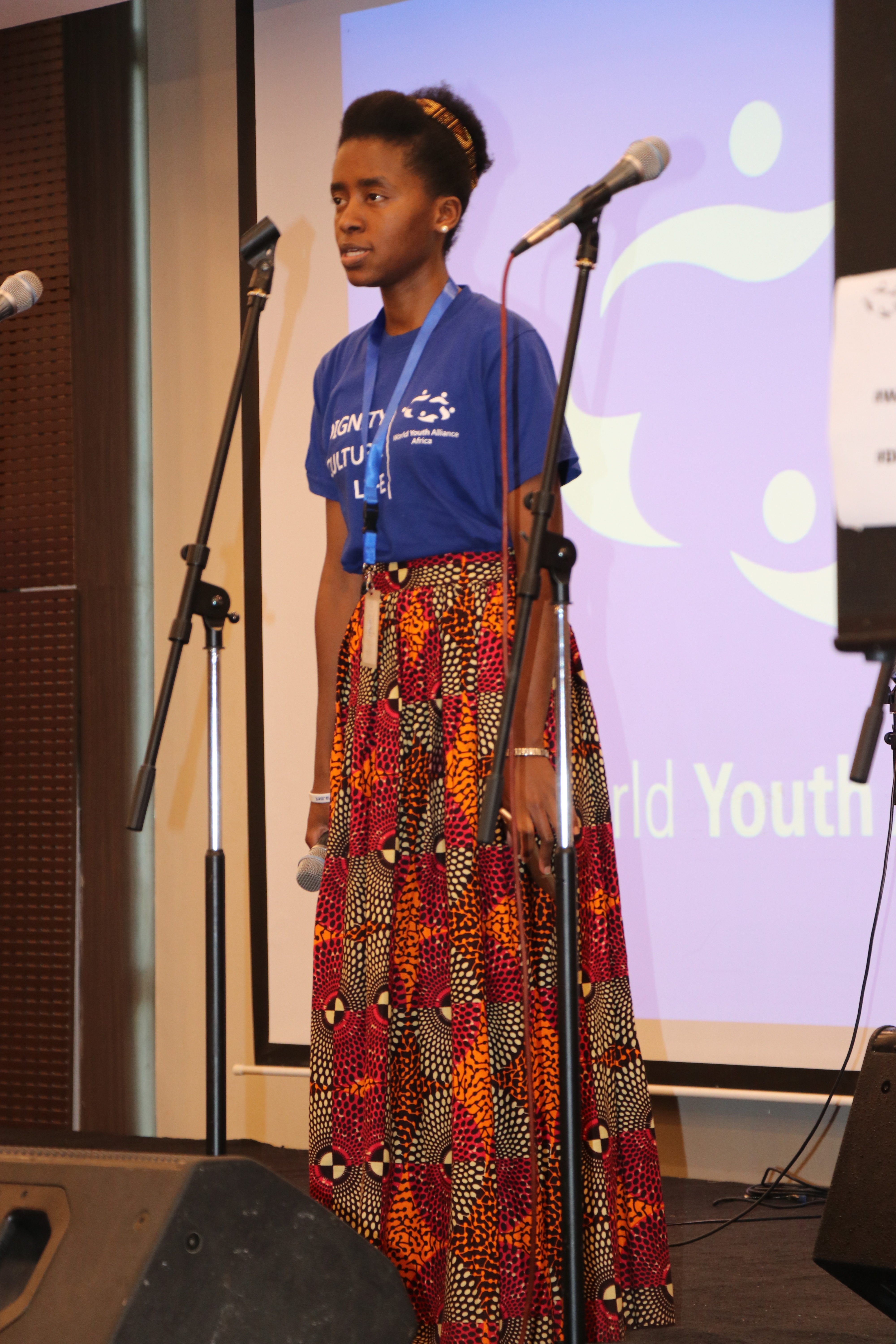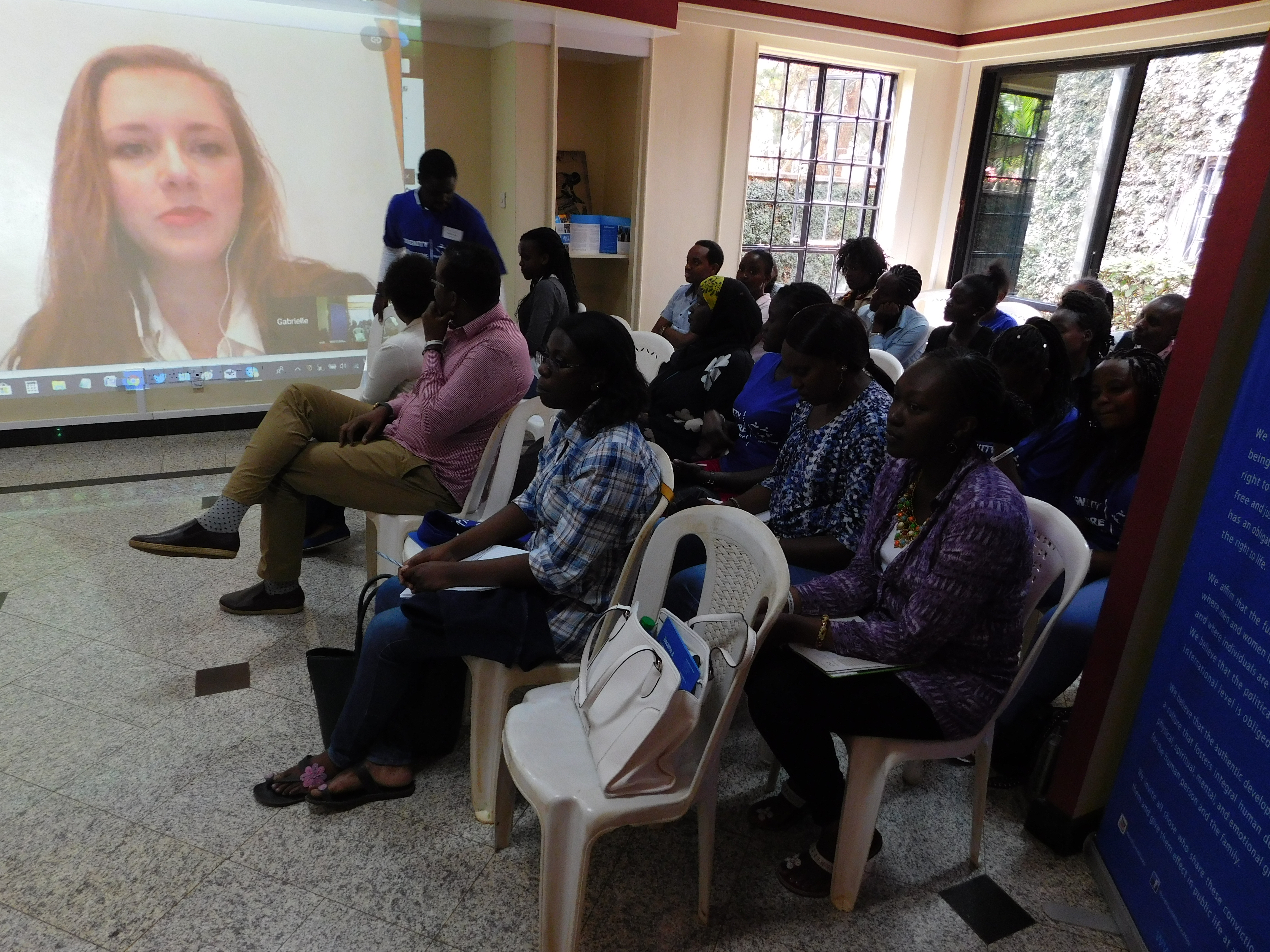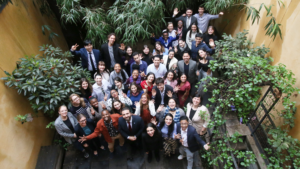 Our greatest wealth in Africa is telling stories, we share a lot through this avenue where we are able to harness the power of the human mind and creativity. For this reason, I will share my FEMM experience as a story; I first met FEMM in 2015, when together with Vanessa, then an intern like me at World Youth Alliance Africa, we went through an introduction session in Nairobi, Kenya. It was eye opening, intriguing and inspiring at the same time and immediately, I was interested. Later in 2016 whilst in New York, I joined the FEMM Teacher Class and as they say, the rest is history, it was something like a case of love at first sight. I have been keen to know more about FEMM and even as I am almost at the end of the Teacher Training, I have made FEMM a personal part of my life, from paper charting to now using the Android App, which I had been waiting for eagerly and it was launched in 2017. I must say charting with the App has been such a rich experience, I know now better what is going on with my cycle, I am able to tell changes and know how to respond in simple ways to ensure I stay healthy. FEMM for me has been one of the best sources of information and confidence in my health journey as a young person, because of the fresh lease of knowledge I have received from it and the understanding it has brought to me, on my overall health. In my engagement with FEMM I have been able to understand the reproductive health aspects of myself better and how simple things like diet, sleep and stress levels affect me both negatively and positively; I am able to see myself as an active participant in staying healthy because of the person-centred approach that FEMM encourages. FEMM answers questions from simple to complex ones like how long is my cycle? what do signs like cramps and headaches mean? What hormones are at play when it comes to my reproductive health ? When do I need to seek medical care?
Our greatest wealth in Africa is telling stories, we share a lot through this avenue where we are able to harness the power of the human mind and creativity. For this reason, I will share my FEMM experience as a story; I first met FEMM in 2015, when together with Vanessa, then an intern like me at World Youth Alliance Africa, we went through an introduction session in Nairobi, Kenya. It was eye opening, intriguing and inspiring at the same time and immediately, I was interested. Later in 2016 whilst in New York, I joined the FEMM Teacher Class and as they say, the rest is history, it was something like a case of love at first sight. I have been keen to know more about FEMM and even as I am almost at the end of the Teacher Training, I have made FEMM a personal part of my life, from paper charting to now using the Android App, which I had been waiting for eagerly and it was launched in 2017. I must say charting with the App has been such a rich experience, I know now better what is going on with my cycle, I am able to tell changes and know how to respond in simple ways to ensure I stay healthy. FEMM for me has been one of the best sources of information and confidence in my health journey as a young person, because of the fresh lease of knowledge I have received from it and the understanding it has brought to me, on my overall health. In my engagement with FEMM I have been able to understand the reproductive health aspects of myself better and how simple things like diet, sleep and stress levels affect me both negatively and positively; I am able to see myself as an active participant in staying healthy because of the person-centred approach that FEMM encourages. FEMM answers questions from simple to complex ones like how long is my cycle? what do signs like cramps and headaches mean? What hormones are at play when it comes to my reproductive health ? When do I need to seek medical care?
It’s a privilege to have such information, knowing that many young women on the African continent are not privy to this and understanding what a pivotal role I play in getting this information to them, I am so glad that FEMM has had its initial translation into Swahili and I know this will be part of making it more accessible to young women in East Africa as it spreads in the African Continent. For a young person, looking to live and experience life in its fullness as I take the best courses of action for my overall health, FEMM has provided me such an avenue, my cycle is no longer a mystery as I am now enlightened with better understanding on my patterns, length of cycles and biomarkers as I learn how all this links with my overall health and how to stay in optimal health. FEMM is important for every young person today because it is core for us youth to understand our value and the role we play in upholding it when we can make decisions whilst having full information. Personally, I have made it a commitment to share FEMM with as many people as possible, by sharing the information widely and most recently getting my friends and family on the iPhone and Android Apps. FEMM is a must have for me and those around me because information is provided in simple ways, because it brings one to be better understanding of their body and because it enables for health issues to be identified early, diagnosed and treated in ways specific to each individual with a focus on the best outcomes for someone.

FEMM is an eye-opening programme, the fact that resonates the most for me, is that it is a credible source of information on women’s reproductive health with a core focus on women and men having proper information for decision making, in addition it is founded on sound research that has medical protocols that form a great foundation for additional medical management when needed. I am excited about FEMM and the potential it has, I am excited to see FEMM transforming Women’s Health for the better in the future and even more on the African Continent. FEMM for Africa is the best thing we could receive at this point in history with our continent having the largest number of young people, there is urgent need for such a programme that will provide the right information and I am grateful to be part of the FEMM success story. My parting shot is to encourage young people, both women and men who want to do better with their health by understanding their hormones, understanding the need for a healthy lifestyle and getting a person -centred response to current reproductive health concerns and questions to join FEMM.
[su_divider top=”no” size=”1″]
Written by Patricia Gwambo, FEMM Teacher-in-Training, Kenya. This blog was originally published on the FEMM website.







